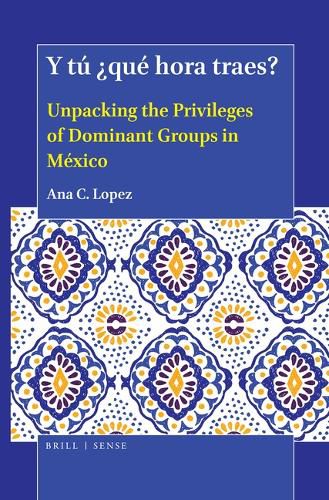Readings Newsletter
Become a Readings Member to make your shopping experience even easier.
Sign in or sign up for free!
You’re not far away from qualifying for FREE standard shipping within Australia
You’ve qualified for FREE standard shipping within Australia
The cart is loading…






This book is a collection of essays and anecdotes in which the author recounts some of her lived experiences. She shares these anecdotes to unpack her privilege while exposing the toxicity of privileged groups in Mexican society; the documented, wealthy, middle-class, white, white-passing, bilingual, non-Black, non-Indigenous, educated, catholic, heterosexual, cisgender, and able-bodied.
While talking about herself, her family, and the education system as she experienced it, the author talks about her process of unlearning ingrained nocive values such as colorblindness, ethnocentrism, and toxic nationalism.
Also touched upon are some of the nocive behaviors and rhetoric that privileged Mexicans (in Mexico) carry with themselves because of their failure to challenge the multiple systems of oppression that they benefit from.
Y tu ?que hora traes? represents but a tiny fraction of the problems, power structures and social injustices that remain unchallenged in Mexico. It is the author’s hope to continue to grow her understanding of the issues that are presented here and to continue working from a self-reflective perspective.
$9.00 standard shipping within Australia
FREE standard shipping within Australia for orders over $100.00
Express & International shipping calculated at checkout
This book is a collection of essays and anecdotes in which the author recounts some of her lived experiences. She shares these anecdotes to unpack her privilege while exposing the toxicity of privileged groups in Mexican society; the documented, wealthy, middle-class, white, white-passing, bilingual, non-Black, non-Indigenous, educated, catholic, heterosexual, cisgender, and able-bodied.
While talking about herself, her family, and the education system as she experienced it, the author talks about her process of unlearning ingrained nocive values such as colorblindness, ethnocentrism, and toxic nationalism.
Also touched upon are some of the nocive behaviors and rhetoric that privileged Mexicans (in Mexico) carry with themselves because of their failure to challenge the multiple systems of oppression that they benefit from.
Y tu ?que hora traes? represents but a tiny fraction of the problems, power structures and social injustices that remain unchallenged in Mexico. It is the author’s hope to continue to grow her understanding of the issues that are presented here and to continue working from a self-reflective perspective.